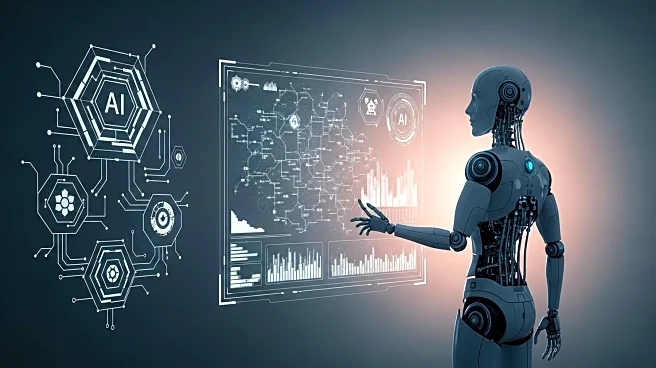What's Happening?
Italy has become the first European Union country to pass a comprehensive law regulating the use of artificial intelligence. The legislation, which aligns with the EU's landmark AI Act, imposes prison terms for harmful uses of AI, such as generating deepfakes, and limits child access to the technology. The law received final approval in the Italian parliament after a year of debate. The government has appointed the Agency for Digital Italy and the National Cybersecurity Agency to enforce the law, which aims to promote human-centric, transparent, and safe AI use while emphasizing innovation, cybersecurity, and privacy protections.
Why It's Important?
The passage of this law marks a significant step in regulating AI technology within the EU, setting a precedent for other member states. By imposing strict penalties for misuse and emphasizing transparency and human oversight, Italy is addressing concerns about the ethical implications of AI. This move could influence how AI is developed and governed across Europe, potentially leading to more stringent regulations in other countries. The law also highlights the balance between fostering innovation and ensuring public safety and rights, which is crucial as AI continues to evolve.
What's Next?
The enforcement of the new AI law will be overseen by the Agency for Digital Italy and the National Cybersecurity Agency. These agencies will ensure compliance with the law's provisions, including the requirement for parental consent for children under 14 to access AI. The government has authorized up to €1 billion from a state-backed venture capital fund to support companies active in AI, cybersecurity, and telecommunications. This financial support aims to bolster Italy's position in the global AI market, although critics argue the sum is small compared to investments by the US and China.
Beyond the Headlines
The law's emphasis on ethical AI development reflects broader concerns about the impact of technology on society. By focusing on human-centric AI, Italy is attempting to mitigate potential negative consequences, such as privacy violations and job displacement. The legislation also addresses copyright issues, ensuring that works created with AI assistance are protected if they originate from genuine intellectual effort. This approach could influence future discussions on intellectual property rights in the digital age.









